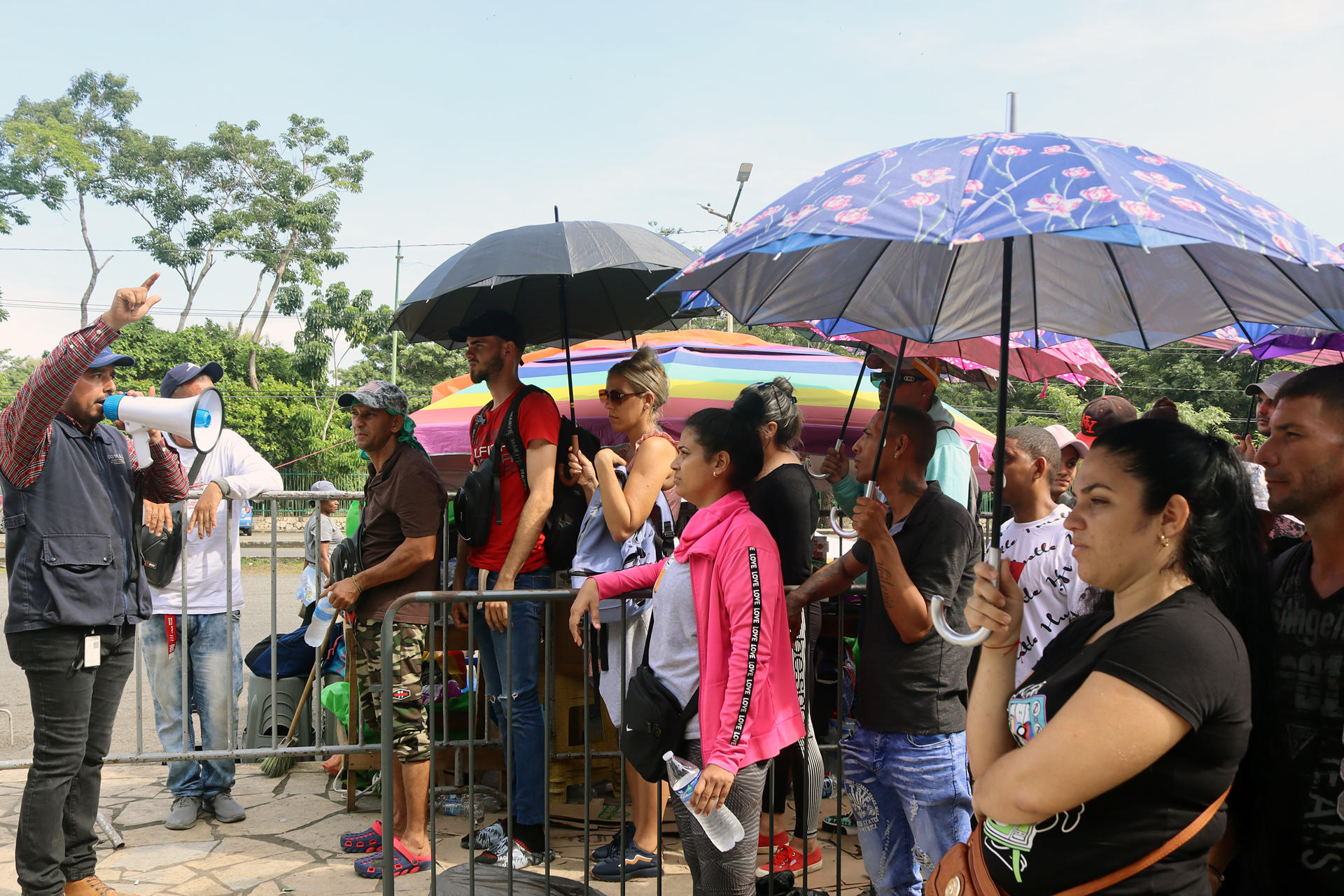The Government’s Mexican Commission for Refugee Assistance (Comar) has assisted some 20,000 migrants on the southern border in the last two weeks, which is equivalent to about a fifth of the almost 100,000 requests in the first eight months of the year.
Cinthia Pérez Trejo, general director of Comar, said in an interview with EFE that they hope to serve this week in Tapachula, on the border of Mexico with Guatemala, a total of 10,000 migrants from Cuba, Haiti, Honduras, El Salvador and, in a smaller amount, from outside the continent.
This would be added to another 10,000 migrants they received last week, so in these 15 days there are close to 20,000, a figure that compares with the 99,881 applications that Comar received nationwide from January to August, a year-on-year increase. of about 30% compared to 2022.
Pérez Trejo pointed out that the number of people is fluctuating and that they are subject to extraordinary pressures because applicants can arrive unexpectedly at the southern border.
“This attention center, the only objective it has, is that it is very important to receive this manifestation of asylum, that is, the first manifestation of wanting to request refuge in the country. For this reason, Mexico and Comar, through the Ministry of the Interior, and partners involved are paying attention,” he expressed.
The migratory wave does not subside in Mexico
The situation on the southern border reflects the “unprecedented increase in migrants in Central America and Mexico,” as the International Organization for Migration (IOM) warned this week.
Mexico is experiencing a new wave of migration, as shown by the suspension of freight trains due to the presence of thousands of migrants in cars and on the roads, demonstrations and stampedes on the southern border, camps on the Rio Grande on the border with the United States. , and clashes with Mexican and American authorities.
Within this flow arrived Jordanis Mora Silva, a migrant from Cuba who has been waiting for his procedures in Tapachula for a month and has joined the line to request political asylum in Mexico so as not to return to his country of origin and continue to the United States. .
This migrant, who was a farmer in his country, stated that he has paid more than $2,000 dollars for a flight from Cuba to Nicaragua, plus another $1,000 dollars for his land journey and another $1,000 dollars for his stay in Tapachula, where he seeks to begin the route through Mexico to the United States.
“What is hitting us the most here are the documents. I have to cross, because here in Mexico I cannot help my children, I cannot take them out and bring them to me, which is my dream, so that they can improve themselves and be someone in life,” he narrated.
Another of their compatriots, Jorge Fernández, stressed that they are exhausted because they have been waiting in line for three days, day and night, so he hopes that they will be able to enter soon to obtain their registration and begin their asylum process.
“We are quite exhausted, we have been sleeping night and day for three days, last night a lot of water fell on us, the people from Immigration see that it is delayed, I don’t know what is happening with the procedure, we want a permit that this Government gives to be in this country, because the objective is to be able to continue,” he assured.
Mexico promises attention
The Mexican official asserted that at this point in Tapachula they provide registration to migrants for an appointment at the second Comar office, where they provide documentation proving that they are already asylum seekers.
According to the Comar official, they have reinforced security at the office in Tapachula with about 20 members of the National Guard, 8 state police and about 15 municipal police officers.
He highlighted that they have carried out tours to verify the facilities.
Keep reading:
- IACHR warns in Mexico that the immigration policies of the United States are “very harsh and severe”
- Mexico evaluates deporting migrants who are rejected in the United States to Venezuela, Colombia and Ecuador
- Nearly two in 10 Central Americans believe the US southern border is open and they can safely apply for asylum, survey shows
